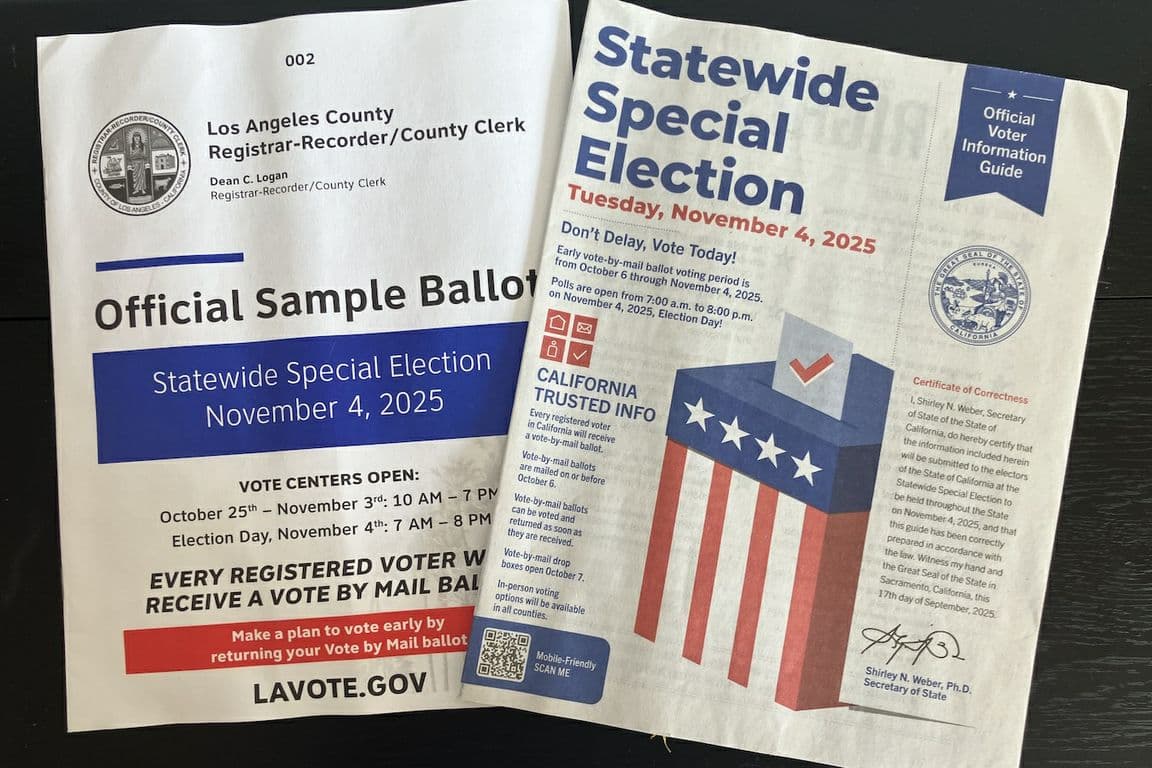California's Proposition 50: Redistricting Battle Heats Up Ahead of November 4 Vote

California voters are heading to the polls on November 4, 2025, to decide the fate of Proposition 50, a controversial legislative constitutional amendment that proposes to temporarily alter the state's congressional district maps. The measure, officially known as the "Use of Legislative Congressional Redistricting Map Amendment," has ignited a highly partisan debate, with proponents arguing it's a necessary response to redistricting efforts in other states, while opponents decry it as a political power grab.
The tweet from "Soquel by the Creek" urges a "NO" vote on Proposition 50, stating, "If California complied with truth-in-advertising laws, your ballot would look more like this. I've included by recommended vote: Please VOTE NO on PROP. 50!" This sentiment reflects a core argument from opponents who believe the proposition misrepresents its true intent or impact. While California does not have specific "truth-in-advertising" laws directly governing ballot measure titles or summaries, state law requires the Attorney General to prepare a circulating title and summary that is a "true and impartial statement" of the measure's purpose and effect.
Proposition 50 seeks to replace the current congressional district maps, drawn by the independent California Citizens Redistricting Commission, with new maps drawn by the state legislature. These legislatively drawn maps would be used for congressional elections starting in 2026 and would remain in effect until new maps are drawn following the 2030 U.S. Census. The measure also includes a non-binding call for the U.S. Congress to establish federal standards for independent redistricting commissions nationwide.
Governor Gavin Newsom and other prominent Democrats are leading the charge for Proposition 50, framing it as a strategic move to counter partisan gerrymandering efforts in states like Texas. Supporters argue that the measure, which they have dubbed the "Election Rigging Response Act," is essential to protect Democratic representation in the U.S. House of Representatives. Recent polls indicate significant support for the measure, with a UC Berkeley Institute of Governmental Studies survey showing 60% of likely voters in favor, and a Politico poll reporting nearly 70% of likely voters considering the outcome "very important."
Conversely, opponents, including former Governor Arnold Schwarzenegger and the California Republican Party, strongly oppose Proposition 50, arguing it subverts the will of voters who established the independent redistricting commission over a decade ago. They contend that returning redistricting power to the legislature is a partisan maneuver that undermines fair elections. The campaign against Proposition 50 has raised substantial funds, with groups like "Stop Sacramento’s Power Grab" and "Protect Voters First" actively campaigning for a "No" vote.
The financial implications of Proposition 50 are relatively minor, with one-time costs to counties estimated at up to a few million dollars statewide for updating election materials. The debate over Proposition 50 highlights the ongoing national struggle over congressional redistricting and its impact on political power, with California's upcoming vote seen as a significant battleground in this broader conflict.